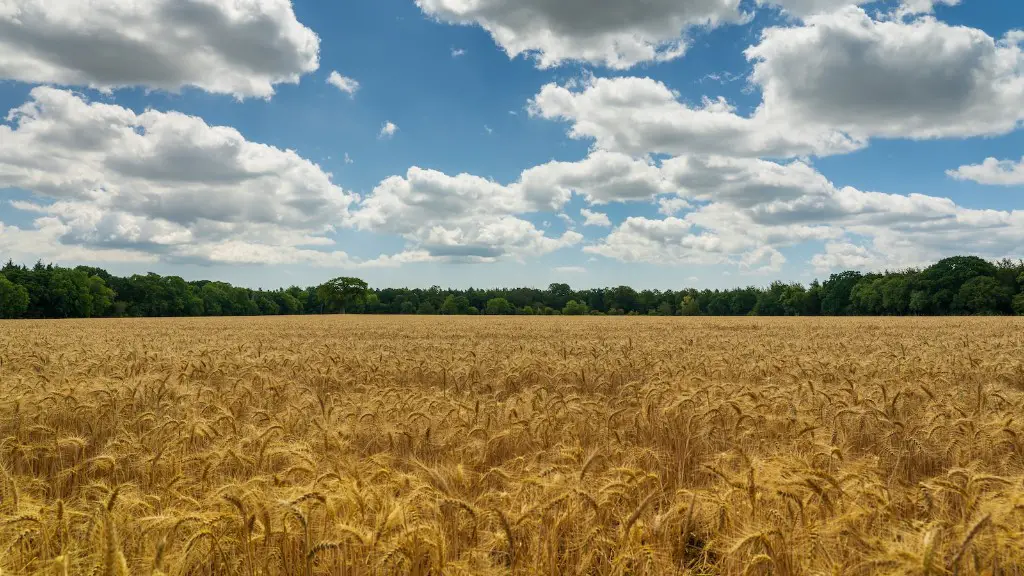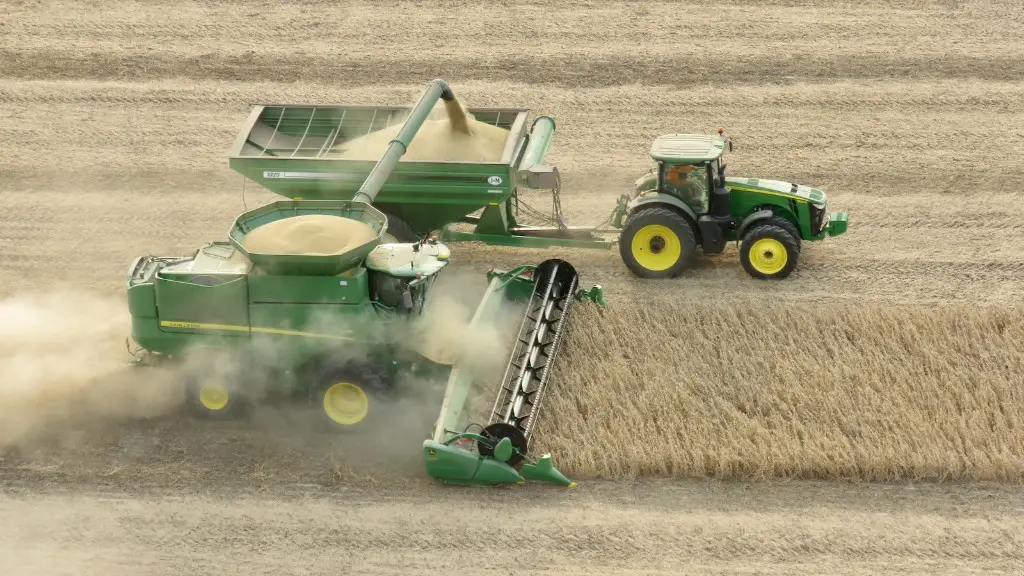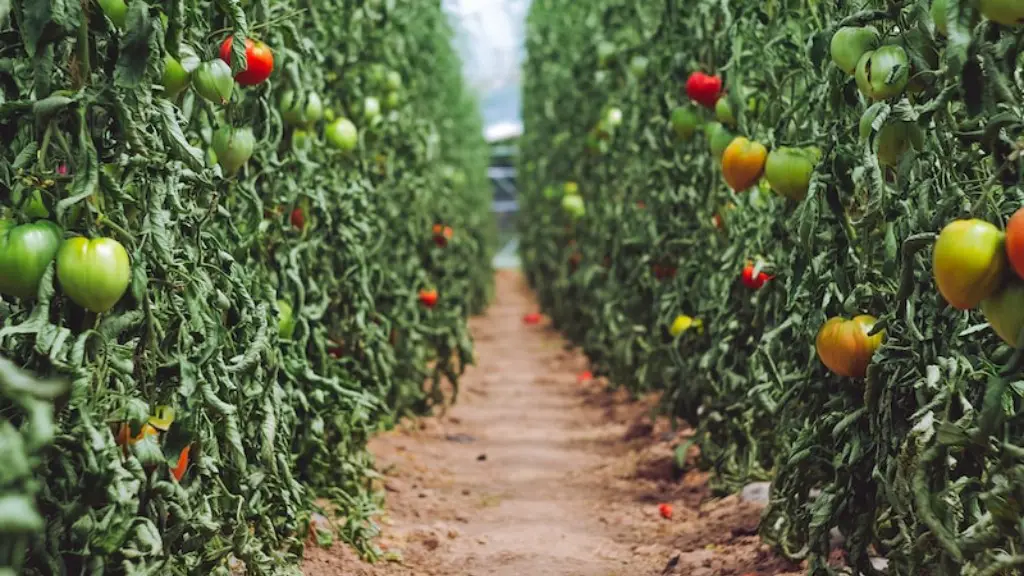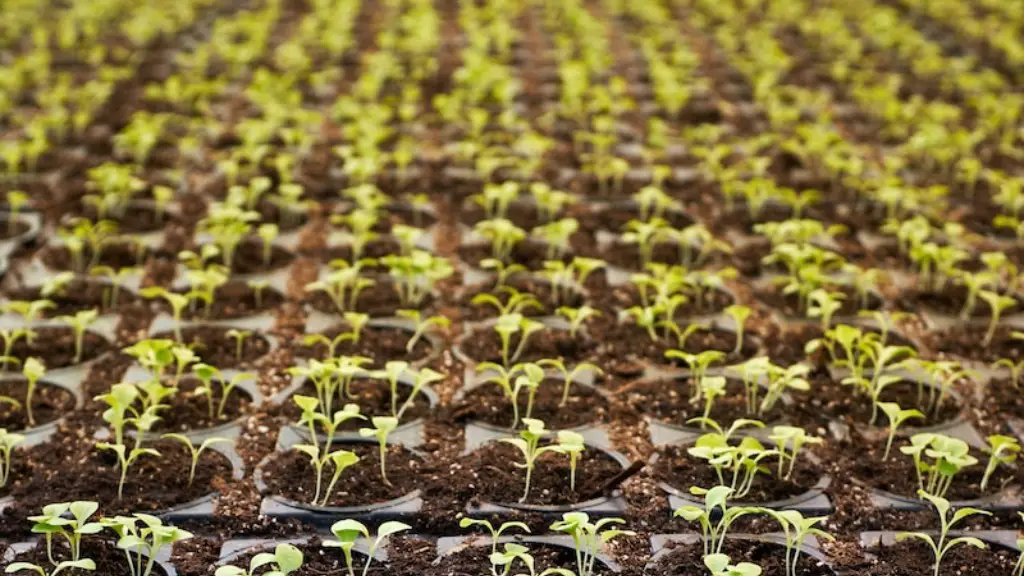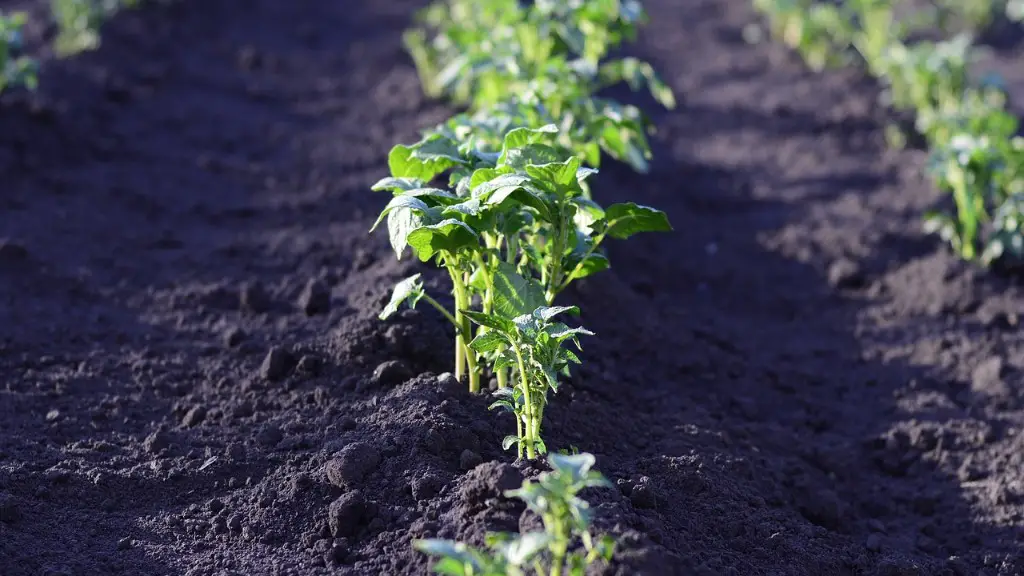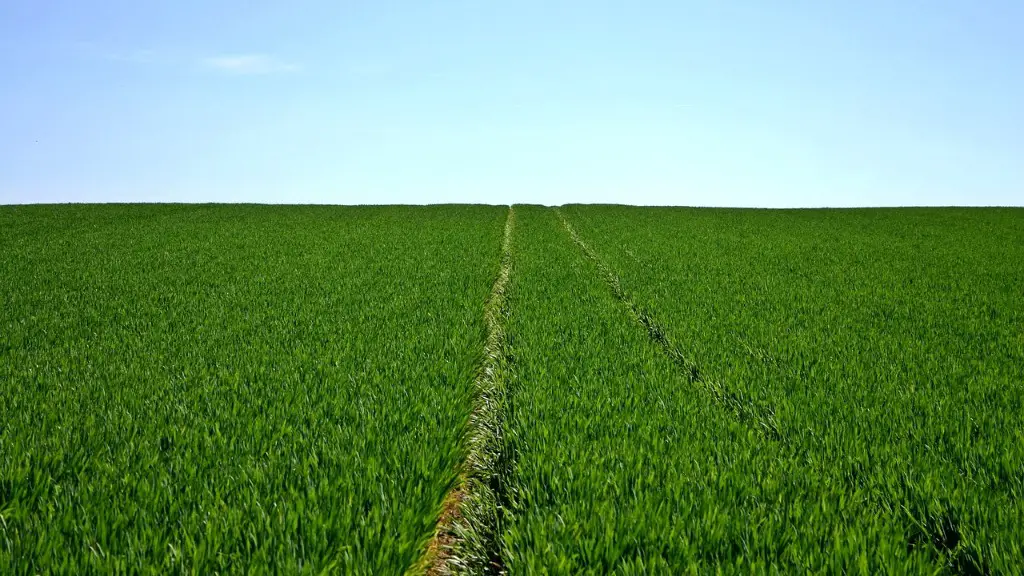In recent years, organic agriculture has become more popular as people become more aware of the benefits it has for both the environment and their health. However, organic agriculture is still a relatively small industry and so it can be difficult to find information on how to get involved. In this article, we will provide an overview of organic agriculture and some tips on how you can promote it in your community.
There are many ways to promote organic agriculture. One way is to support farmers who are already using organic practices. Another way is to educate others about the benefits of organic agriculture. You can also encourage people to buy organic products.
How do you promote organic products?
There are many reasons to buy organic, and as a business, it’s important to make sure your customers are aware of the benefits. Offering an organic buying guide can help new customers understand why organic products cost more, and how they can make more sustainable choices. Promoting the eco-aspects of organic products, and using greener business practices, can also help show your commitment to sustainability.
Organic farms are a great way to produce less pollution. Synthetic fertilizers, pesticides, and other farming chemicals are harmful to the soil and can run off into the water supply. By eliminating these dangerous chemicals, organic farms release less pollution into the environment.
What are 5 pros of organic farming
Organic farming has many benefits that make it a desirable choice for farmers and consumers alike. Organic farming is environmentally friendly, promotes sustainable development, produces healthy and tasty food, and is inexpensive to implement. Additionally, organic farming generates income through exports and provides employment opportunities.
Organic foods have been shown to be more nutritious than non-organic or conventional foods. Consumers perceive organic foods as more natural and environmentally friendly than conventional foods.
What does organic agriculture promote?
Organic agricultural systems can offer a number of conservation benefits, including improved soil and water quality, resilience to climate disruption, lower use of non-renewable energy, increased biodiversity, and wildlife habitat quality. These benefits can help to support a more sustainable and environmentally friendly agricultural system.
Organic methods of farming are becoming increasingly popular as people become more aware of the importance of sustainable practices. These methods, like composting, mulching, and using bio-fertilizers, help promote healthy crop growth and soil richness. Vermicomposting is another excellent method of introducing important nutrients into the soil naturally.
What are 3 the sustainable aims of organic agriculture?
Sustainable agriculture is a type of agriculture that integrates three main goals: environmental health, economic profitability, and social equity. These goals are achieved by using a variety of philosophies, policies, and practices. However, there are a few common themes and principles that are essential for sustainable agriculture.
First, sustainable agriculture must be environmentally friendly. This means that it must protect and improve the natural resources that are necessary for agriculture, such as soil, water, and air. Additionally, sustainable agriculture must minimize the use of pesticides, fertilizers, and other harmful chemicals. Second, sustainable agriculture must be economically viable. This means that it must be able to produce enough food to meet the needs of the people it serves, while also generating enough income to support the farmers and other workers involved. Finally, sustainable agriculture must be socially just. This means that it must provide fair wages and working conditions for those involved, and it must ensure that the food it produces is accessible to everyone, regardless of income.
Sustainable agriculture is essential for the future of our planet. By using these principles, we can create an agricultural system that is environmentally responsible, economically prosperous, and socially equitable.
Organic farming is a more sustainable way of producing food than traditional methods. The lack of pesticides and wider variety of plants enhances biodiversity and results in better soil quality and reduced pollution from fertilizer or pesticide run-off.
What are the 3 types of organic farming
Organic farming is of two types; Pure Organic Farming and Integrated Organic Farming. Pure Organic Farming – This involves avoiding all unnatural chemicals. This is the most difficult and purest form of organic farming. farmers who choose this method must be willing to forgo many of the advantages that chemical use provides. This can be a difficult decision for a farmer as it may mean reduced yields and higher costs. However, many consumers are willing to pay more for organic products, and the demand for these products is growing. Integrated Organic Farming – This is a more common form of organic farming, and it involves using some natural chemicals while avoiding others. This approach allows farmers to take advantage of the benefits that chemicals provide while still meeting the standards of organic farming. This can be a difficult balance to achieve, but many farmers are doing it successfully.
Organic farming is a type of agriculture that relies on natural processes, rather than the use of synthetic inputs, to enhance or maintain the productivity of the farm system.
Organic farming practices aim to optimize the health and productivity of both the farm ecosystem and the people who live and work within it. Its characteristics are: Use of organic materials as pesticides and insecticides, protecting the long-term fertility of the soil, Frequent decomposing and fallowing.
Why is organic farming the best?
There is no silver bullet for mitigating the effects of climate change, but organic farming practices can help to reduce greenhouse gas emissions, protect soil health, and conserve natural ecosystems. Organic farming has a smaller carbon footprint than conventional agriculture, and it does not require the use of toxic pesticides. Soil erosion and water pollution are also reduced with organic farming practices. Furthermore, organic agriculture can help to replenish natural ecosystems and provide cleaner air and water.
There are many reasons to choose organic foods over non-organic foods. Organic foods are free of pesticides, herbicides, and other harmful chemicals. They are also higher in nutrients and antioxidants, and have a better taste. Additionally, organic foods are typically GMO-free, and do not contain hormones, antibiotics, and other drugs commonly found in animal products. Furthermore, organic foods help preserve our ecosystems, reduce pollution, and protect our water and soil. Finally, organic foods support agricultural diversity, which is essential for the long-term health of our planet.
Why do people like organic crops
Eating organic is one of the best ways to reduce the amount of chemicals in your diet. persistent pesticides can be found in non-organic food, and they can be harmful to your health. The use of insecticides, fungicides, fertilizers, and weedkillers are strictly monitored in organic food production, so you can be sure that the food you’re eating is safe. Organic farming produces healthy food without the use of toxic pesticides, so it’s a great option for those looking to eat clean.
Subsidies for organic farming inputs and regular and effective distribution of inputs to farmers ie making the products available are some ways to encourage them to continue with organic farming. Moreover, another way to encourage organic farming is to create an environment where it is easy for the farmers to get information and advice on organic farming practices.
What are the 4 principles of organic agriculture?
Organic agriculture is based on a number of principles that emphasize the need to protect the environment, promote fairness, and ensure a high level of care for both people and animals. These principles are often referred to as the “roots” of organic agriculture, as they provide the foundation on which the entire system is built.
The first principle is that of health. Organic agriculture strives to produce food that is healthy for both people and the environment. This means using practices that protect and enhance the natural resources of the land, and minimizing the use of synthetic chemicals.
The second principle is that of ecology. Organic agriculture recognizes the interdependence of all living things, and strives to create a system that is in harmony with the natural world. This includes using practices that conserve resources, and working to restore and protect ecosystems.
The third principle is that of fairness. Organic agriculture seeks to create a fair and just system that benefits all those involved, from farmers to consumers. This includes ensuring fair prices for farmers, and providing safe and ethical working conditions.
The fourth and final principle is that of care. Organic agriculture is based on the principle of care for both people and the environment. This includes using practices that protect the health and wellbeing of both people and
Organic agriculture can affect the costs of production in a few different ways. In general, organic farmers rely on resources that are recycled on-farm, and they rely on management practices rather than on purchased fertilizers and pesticides. This approach can significantly reduce some costs of production. Additionally, organic farmers often produce a higher value product, which can offset some of the increased costs associated with organic production.
What is the biggest problem for organic farmers
Organic growers in the US face a number of challenges, including lower yields relative to conventional farming, difficulty maintaining high quality soil nutrients, gaining proper certifications and market access. While organic farming practices can be beneficial for the environment, they often come with a higher price tag that can make it difficult for small farmers to compete. Additionally, organic growers must be vigilant in maintaining soil health and preventing pests and diseases, as there are often no synthetic pesticides or fertilizers to rely on. Proper certification from an accredited body is also necessary to sell products as organic, which can be a lengthy and costly process. Despite these challenges, organic farming is growing in popularity as consumers become more aware of the benefits of buying organic products.
Sustainable agriculture is an approach to crop and livestock production that seeks to balance the economic, environmental, and social aspects of farming. Sustainable agriculture practices can help farmers conserve natural resources, improve soil and water quality, and better protect the health of their workers, families, and communities.
Common sustainable agriculture practices include rotating crops, planting cover crops and perennials, reducing or eliminating tillage, and applying integrated pest management (IPM). Other practices include integrating livestock and crops, adopting agroforestry practices, and managing whole systems and landscapes.
Conclusion
There are many ways to promote organic agriculture. One way is to support farmers who are transitioning to organic methods. Another way is to buy organic products whenever possible. You can also spread the word about the benefits of organic agriculture, and encourage others to do the same.
Organic agriculture is a key component to sustainable living. It is important to educate people on the benefits of organic foods and how they can be produced without the use of chemicals. There are many ways to promote organic agriculture, such as starting a community garden, setting up an informational booth at a farmers market, or writing articles and blogs about the subject. Whatever method you choose, remember that organic agriculture is vital to our planet and our health.
